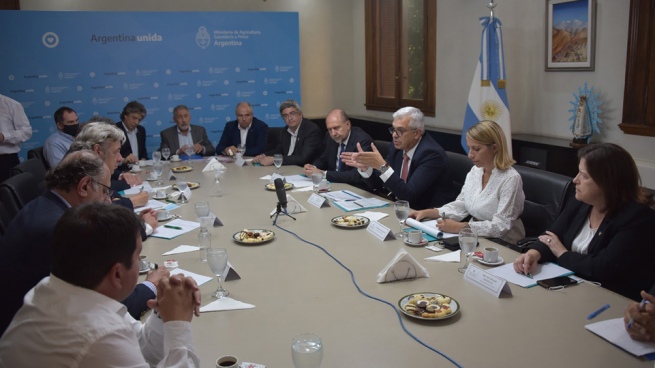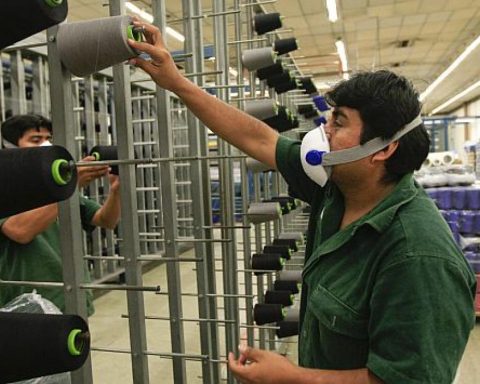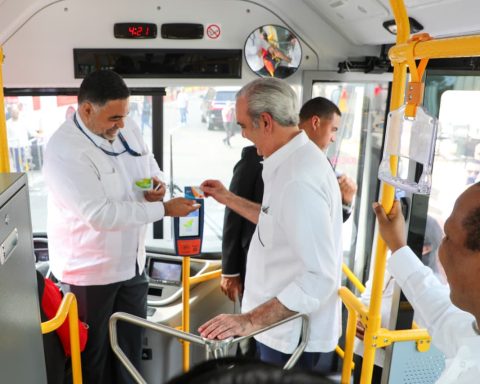The Minister of Agriculture, Livestock and Fisheries, Julián Domínguez, presented the GanAr livestock plan for the next two years, which contemplates the release of the export of category D, E and F cows but maintains the prohibition for shipments abroad of seven popular cuts, including asado and matambre.
As detailed Domínguez, the free export of category D, E and F cows will be enabled -canned and manufactured cows-, at the same time that the shipment of bull meat was enabled.
In addition, the creation of credit lines was advanced to boost production at a subsidized rate of $ 100,000 million and it was announced that during the week of the holidays the export meat factories will enable an additional supply of meat of 20,000 tons at affordable prices for the domestic market .
“The decision of President Alberto Fernández is to increase meat production, both to facilitate access to all Argentines and to generate predictability and trust throughout the chain,” said Domínguez during the meeting that took place at the Ministry’s headquarters with the authorities of the Liaison Table, to whom the plan was communicated.
This decision, which was a request from the agricultural entities, would contemplate 1.3 million animals that make up these categories.
Nevertheless, cuts such as roast, lid of roast, vacuum, matambre, skirt, shoulder and buttock they will continue to be prohibited for export, to be marketed at affordable prices in the domestic market.

“The scenario is one of unrestricted exports,” Domínguez said at a press conference, at the same time that he maintained that the inclusion of category C cow will be discussed once the current cattle stock is known, data that will be obtained in April 2022.
“There is a new livestock plan. That plan is free. The seven cuts for internal supply will be guaranteed. The rest is free,” Domínguez confirmed.
In this sense, the national official commented that he asked the entities “if they believed they were in a position to exceed the goal of one million tons and achieve the supply of 50 kilograms per person from the domestic market and they understand that these are achievable goals. I hope that is the right one. last meeting to diagnose the difficulties we have and that we can go for new goals and new horizons. “
Regarding the 20,000 tons that the exporting refrigerators will dump additionally to the domestic market, he indicated that it responds to a request from the portfolio and that they will be carried out at “reference prices indicated by the Ministry of Internal Trade, which will meet with the group of meat exporters “.
As he advanced, they planned to distribute them in 2,600 points of sale in different parts of the country.
On the other hand, a production promotion plan will be created, through $ 100,000 million in credits with a subsidized rate of 7%, whose recipients will be the producers directly, with the aim of increasing “the weight of work and to the percentage of weaning “, as well as stimulating” investment in genetics and animal health “.
This agreement will be signed next week at Banco Nación.
Finally, the establishment of an Advisory Council within the scope of the Ministry was established, chaired by the head of the agricultural portfolio and made up of national organizations, academics, and entities and chambers of the productive sector.
In this regard, the president of the Argentine Rural Confederations (CRA), Jorge Chemes, declared “to agree” with what was announced since “evidently the changes that have taken place are what has been claimed. There is a lack of measures and to adjust a little more, but the points that were changed is an evolution. We need this to be put into practice. “
The head of the Argentine Rural Society (SRA), Nicolás Pino; the president of the Argentine Agrarian Federation (FAA), Carlos Achetoni; his pair of Argentine Rural Confederations (CRA), Jorge Chemes; and by Coninagro, Elbio Laucirica.
Domínguez, meanwhile, was accompanied by the governor of Santa Fe, Omar Perotti, and the governor of Santiago del Estero, Gerardo Zamora, who participated remotely. The Vice Governor of Entre Ríos, María Laura Stratta; the Buenos Aires Minister of Agrarian Development, Javier Rodríguez; and the holder of the Pampean Production portfolio, Fernanda González.

















